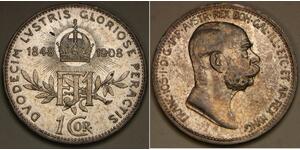[ 5769] ANTIGONOS III DOSON - GREEK MACEDONIAN KING: 229-221 B.C.- Silver Tetradrachm (33.5mm, 17.21 gm.) Amphipolis (?), c.227-225 B.C. Reference: SNG Alpha Bank 1046; SNG Ashmolean 3266). Head of Poseidon fasing right, wearing a wreath of seaweed. Apollo seated left on a prow inscribed BAΣIΛEΩΣ/ANTIΓOΝOY, testing a bow with his extended right hand, and leaning on the prow with his left, a monogram below. Provided with certificate of authenticity. CERTIFIED AUTHENTIC by Sergey Nechayev, PhD - Numismatic Expert Antigonus III Doson (Greek: Ἀντίγονος Γ΄ Δώσων, 263–221 BC) was king of Macedon from 229 BC to 221 BC. He was a member of the Antigonid dynasty. Family Background Antigonus III Doson was a half-cousin of his predecessor, Demetrius II Aetolicus. Doson's father was Demetrius the Fair (briefly king of Cyrene), the son of Demetrius Poliorcetes and his third wife, Ptolemaïs, daughter of Ptolemy I Soter and Eurydice, daughter ofAntipater. As such, Demetrius the Fair was, on his father's side, a younger half-brother of Demetrius II's father, Antigonus II Gonatas, the son of Poliorcetes by his first wife, Phila, another of Antipater's daughters; as well as a nephew of both Ptolemy Keraunos andMeleager on his mother's side. According to Eusebius, Doson's own mother was a Thessalian noblewoman, Olympias, daughter of Pauliclitus of Larissa. Antigonus also had a brother named Echecrates, whose son, named Antigonus after Doson himself, was put to death by Perseus on the latter's accession to the throne of Macedon. Doson's father, Demetrius the Fair, died sometime around 250 BC, as a result of events that occurred after being summoned from Macedonia to Cyrene to marry Berenice II, the daughter and heir of Magas of Cyrene. Rather than contenting himself with his young bride, Demetrius openly became the lover of her powerful mother, Apama II. So the jealous bride took her revenge by having him assassinated.[5] It is unclear whether Doson's mother had died before this time. The meaning of Antigonus' by-name is uncertain. According to Plutarch it "implied that he was given to promising but did not perform his engagements",[6] though even the exact meaning of this is unclear. Regent of Macedonia When Demetrius II died in battle in 229 BC, his son and would-be successor, the later Philip V, was only nine years old. According to Plutarch, both the Macedonian army and nobility thought the political situation too volatile to wait for Philip V to mature enough to assume command. As a consequence, the Macedonian nobility turned to Doson, who was subsequently made regent of the kingdom and married to his predecessor's widow and the mother of Philip, Chryseis. However, it was only after Doson demonstrated his leadership abilities by succeeding (where his cousin Demetrius had failed) in defeating the Dardanii invaders and also in putting down a rebellion by the Thessalians, and showing his rule to be generally moderate and good, that he given the title of king. Unlike his Antigonid ancestors, he had no viable rivals to challenge his right to rule. Yet, even as king he apparently envisioned himself as caretaker for his cousin's son, Philip V. King of Macedonia As king, Antigonus III proved to be as much a master of tactical diplomacy as of military strategy. In less than a decade of rule he not only secured the borders of his nation, he also reestablished Macedon as the dominant power in the region. Unlike previous Macedonian rulers who attempted direct dominion over their fiercely independent neighbors to the West and South, he formed alliances with Epirus and the Achaean League. When Sparta, under Cleomenes III, attempted to establish hegemony over the whole Peloponnese, Aratus of Sicyon - long the leader of Greek opposition to Macedonian domination - invited Antigonus to intervene (226 BC). Establishing his base on the heights above Corinth, Antigonus reconstituted a broad-based Hellenic league (224 BC) under ...
más ...
Similar Coin Groups

1 Tetradracma Antigua Grecia (1100BC-330 ...
grupo tiene 31 monedas / 31 precios
Add coin to this group
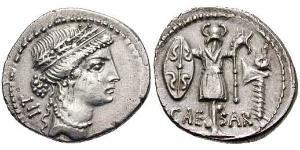
Denario República romana (509BC-27BC) P ...
grupo tiene 11 monedas / 10 precios
Add coin to this group

1 Sixpence Reino de Inglaterra (927-1649 ...
grupo tiene 12 monedas / 5 precios
Add coin to this group

1/2 Stiver Sri Lanka / Reino Unido de Gr ...
grupo tiene 5 monedas / 5 precios
Add coin to this group
2025-05-24
- Historical Coin Prices
2025-05-23
- New coin is added to 1 Corona Imperio austrohúngaro (1867-1918) Plata Franz Josep ...
1 Corona Imperio austrohúngaro (1867-1918) Plata Franz Josep ...
grupo tiene 25 monedas / 17 precios
⇑
AUSTRIA 1 Corona 1908 - Silver 0.835 - 60 A. Reign of Franz Joseph - aUNC -2673*
Usted podría estar interesado en …

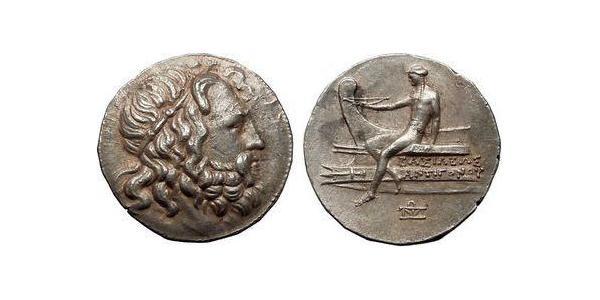







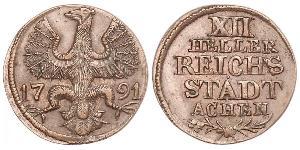
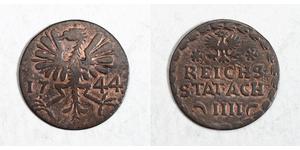


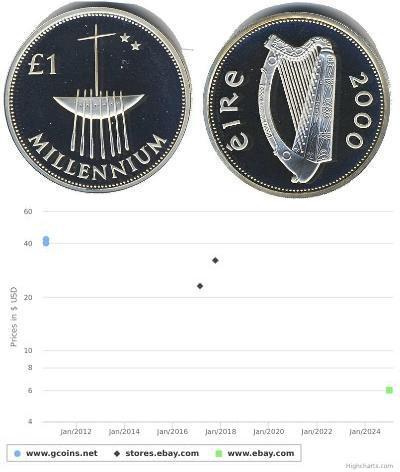
-300-150-AeIKqUpY7NEAAAFhroEy54Nz.jpg)
